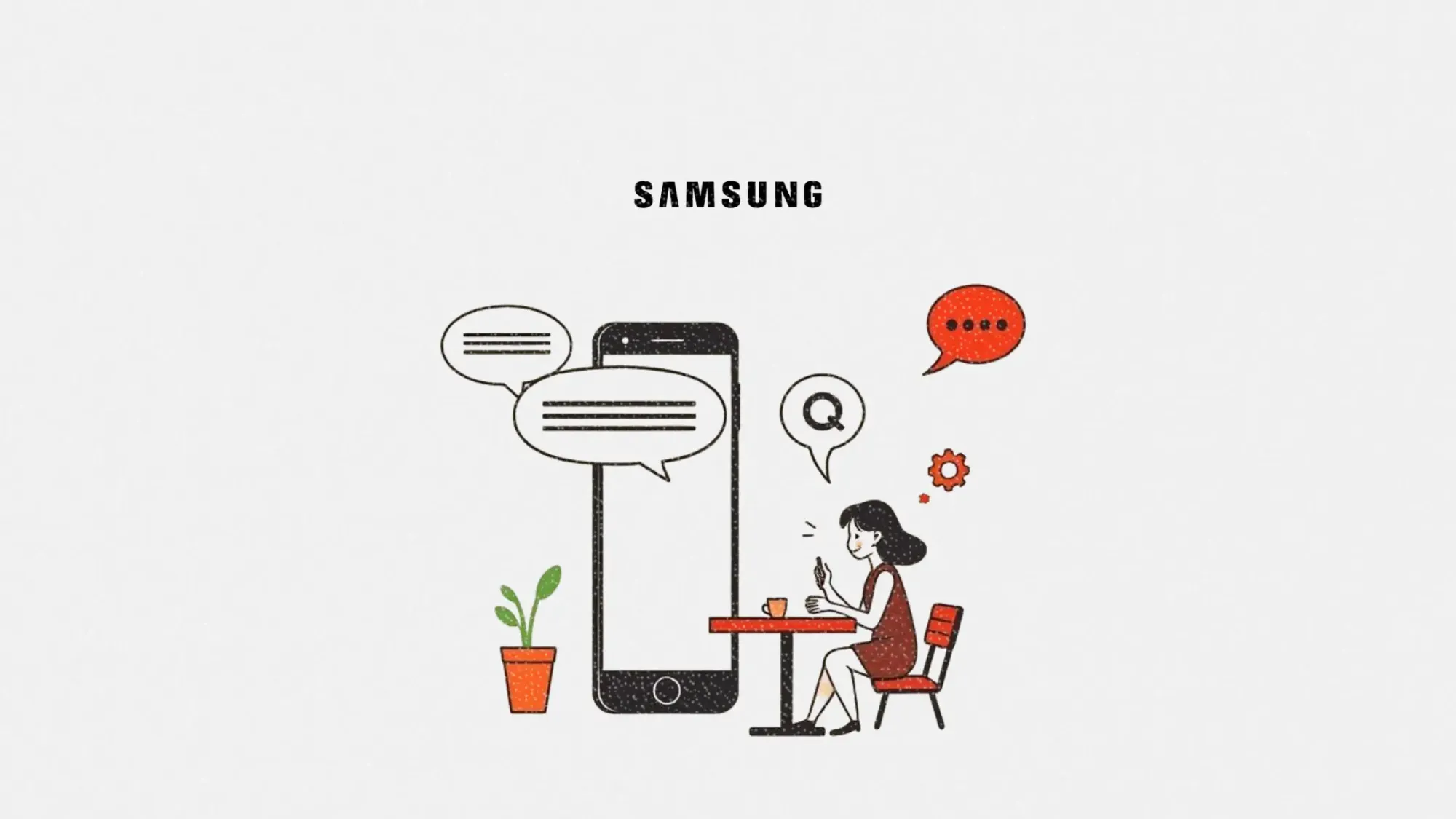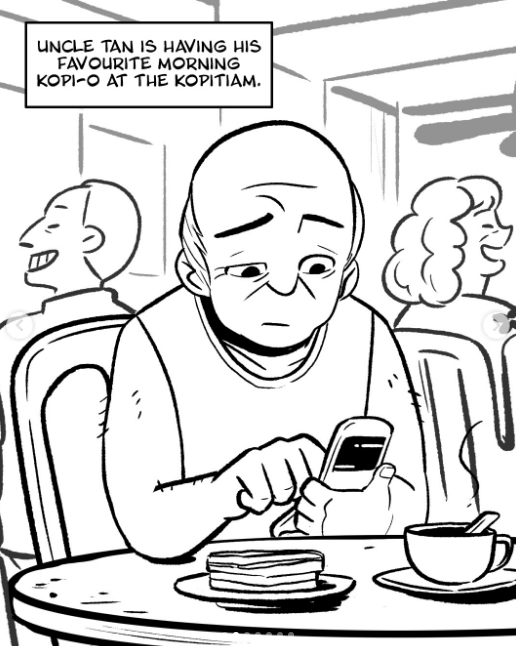Samsung turns to comics to make AI feel human and helpful
Samsung's new Galaxy A campaign uses local storytelling to explain AI in relatable ways.

Samsung Singapore’s latest campaign trades flashy product videos for something more down-to-earth: a comic book. The brand has launched a hyper-local comic series called Uncle & Aunty get smart(phone), spotlighting the AI-powered features of its Galaxy A Series smartphones.

But this isn't just a quirky content stunt. With AI still misunderstood (and often feared) by the average user, Samsung is betting on familiar characters, hawker-centre banter, and practical examples to drive AI adoption across a wider audience.
This article explores how Samsung's comic-led strategy reframes AI as simple, useful, and worth trusting.
Short on time?
Here’s a table of contents for quick access:

What's the comic about?
The comic follows Uncle Awesome, a savvy smartphone user, as he introduces his friend Uncle Tan to the “Awesome Intelligence” of Samsung’s Galaxy A devices. Each strip focuses on real-life moments where Galaxy AI tools offer practical support.
In one scene, Uncle Awesome uses the Circle to Search feature to instantly identify a bird species. Other scenes cover everyday functions like on-device translation and photography tools, highlighting how AI can enhance day-to-day life rather than complicate it.
Copies of the comic are available at Samsung Experience Stores and major electronics retailers in Singapore, including Challenger, Courts, Best Denki, Gain City, and Harvey Norman.
Why a comic, and why now?
According to Samsung, the campaign is meant to make AI “less daunting and more approachable” to everyday consumers. This isn't an abstract positioning exercise. It's a deliberate, strategic move to make AI tangible to users who are curious but skeptical.
“Making AI accessible starts with building trust,” said Lynn Chong, Head of Marketing at Samsung Singapore. “With the new Galaxy A Series, we want to communicate our efforts in delivering trusted and seamless AI experiences.”
Samsung’s internal creative team led the project, with Eugene Lim as designer and Jacelyn Ho as writer. The goal was to keep the concept both culturally grounded and tightly aligned with brand messaging.
AI meets kopitiam culture
What sets this campaign apart is its use of local characters and situations to demystify a global technology. By placing AI in the context of kopitiam chats and neighborhood bird-watching, the campaign avoids tech jargon and focuses on relatable value.

This human-first narrative also helps Samsung differentiate from rivals. Instead of highlighting futuristic AI capabilities, the focus here is on real, achievable improvements to daily digital life.
The tone is accessible, not aspirational. It’s a smart move considering the Galaxy A Series targets price-conscious consumers who want modern tech without complexity.
What marketers should know
Samsung’s comic-book strategy offers lessons for marketers navigating AI storytelling, especially in markets where tech can feel alienating.
1. Use hyper-local storytelling to build tech trust
Instead of abstract promise or fear-mongering, Samsung grounded AI in day-to-day life. This makes the technology more relatable and earns trust faster, especially among audiences still warming up to AI tools.
2. Contextualize the product, don’t just demo it
Rather than listing features, the comic shows real scenarios where AI solves micro-problems. It's a format that prioritizes user benefit over product bragging.
3. Creative doesn’t need to be flashy to be effective
By skipping influencer-heavy content or CGI-laden videos, Samsung kept the tone intimate and local. For brands trying to reach specific demographics, like older or budget-conscious users, this stripped-down approach may outperform glossier campaigns.
4. Cross-demographic storytelling can bridge generations
Samsung has been tailoring its AI messaging across age groups. While younger audiences got a Z-series digital festival and creator-led micro-series, the Galaxy A comic appeals to more traditional, offline users. This segmentation shows that not every AI story has to look the same.




